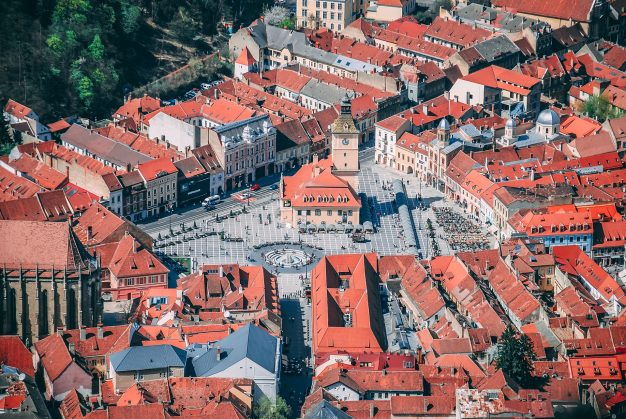
Student council boosts Romanian city’s bid for Child-Friendly status
A new student council set up by the Romanian city of Brasov is kick-starting the municipality’s child-friendly status with UNICEF.
The new council aims to ensure that young people can play an active role in the policy-making processes of what is the country’s seventh largest city by population (around 250,000).
Allen Coliban, the Mayor of Brasov, is leading the city’s partnership with the charity, having signed a memorandum with UNICEF’s representative in Romania, formalising its commitment to formally becoming a Child-Friendly City by 2024.
The agreement outlines the municipality’s specific commitments and targets to be eligible to receive UNICEF’s prestigious title, which in turn will offer continuous support and resources to the city authorities. The initial stand-out idea is to create a government body of elected student representatives that will be able to take part in the municipal life of the city.
Under the terms of the agreement, Brasov has three years to implement the necessary measures and procedures to receive the Child-Friendly City title, reports local media Bunazia.
Mayor Coliban said the main objective of the project is to involve students and young people in making decisions, so that the decisions that the municipality will take will be made in the interest of these age groups.
“It is very important to become a child-friendly city at the same time and I am glad that a partner of UNICEF’s stature is with us in this project, to transfer us, to help us, to offer us advice in various measures to implement such an objective.
“The fact that today we signed this memorandum is a first step towards opening the local administration to participatory decisions and for children, and we propose that together with UNICEF to form that Children’s Council, elected on a democratic basis, which we have with us in the decisions we will take for the city and for the common future.”
UNICEF defines a child-friendly city (CFC) as ‘a city, town, community or any system of local governance committed to improving the lives of children within their jurisdiction by realizing their rights as articulated in the UN Convention on the Rights of the Child’.
In practice, it is a city, town or community in which the voices, needs, priorities and rights of children are an integral part of public policies, programmes and decisions.
Broadly speaking, it is a city, town or community where children:
- Are protected from exploitation, violence and abuse.
- Have a good start in life and grow up healthy and cared for.
- Have access to quality social services.
- Experience quality, inclusive and participatory education and skills development.
- Express their opinions and influence decisions that affect them.
- Participate in family, cultural, city/community and social life.
- Live in a safe secure and clean environment with access to green spaces.
- Meet friends and have places to play and enjoy themselves.
- Have a fair chance in life regardless of their ethnic origin, religion, income, gender or ability.
Pieter Bult, UNICEF’s Romania representative, added: “The child-friendly localities initiative has been implemented for many years, since the 1990s, and so far thousands of cities, towns and communes have been part of this initiative, striving to promote children’s rights through local government. For Romania. Brasov is among the first cities to join this initiative.”
Click here for more on UNICEF’s Child-Friendly Cities.




